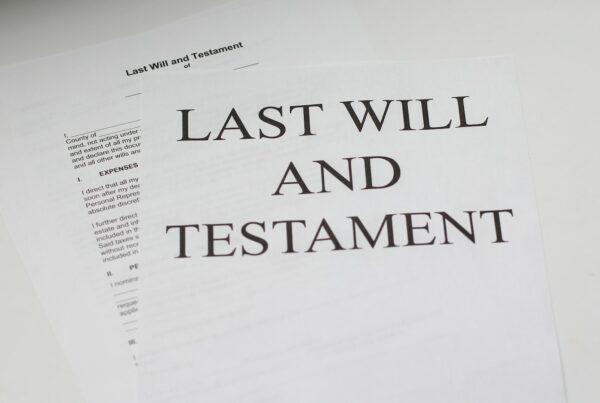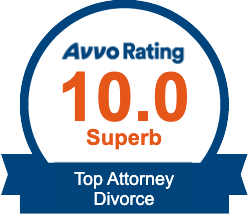What is guardianship?
There are various forms of guardianship in Illinois. This article will discuss guardianship options for adults with disabilities. A guardian is an individual that is appointed by the court to make decisions concerning a disabled adult’s medical concerns (guardianship of person) on the disabled adult’s behalf, and or an individual who is appointed by the court to manage a disabled adult’s finances (guardianship of the estate) on the disabled adult’s behalf.
How do I become a guardian for my disabled loved one?
By designation: You may be appointed guardian of a disabled adult if you are designated as guardian by the individual who has become disabled. The disabled adult must have appointed you as their guardian while of sound mind and memory and must have done so in writing. It is best practice to treat any document designating a guardian as if it is a will. In short, it is best practice to have an attorney draft the designation of guardian, to execute the document in front of a notary and to have witnesses present when the document is signed.
Petition the court: When a loved one becomes disabled and they have not previously designated you as their guardian, you must file a petition with the probate court if you want to act as your loved one’s guardian. Specifically, you must file a Petition for Adjudication of Disability and for Appointment of Guardian of Person and Estate. The Illinois Probate Act is very specific as to who can be appointed the guardian for a disabled adult. Those who qualify must strictly follow the requirments set forth in the Illinois Probate Act of 1975.
Do I qualify to be appointed guardian? First, in order to be appointed guardian you must be at least 18 years old, you must be a resident of the United States, you must be of sound mind, you must not be adjudged to be a person with a disability, and you must not be a convicted felon. Felons can only be appointed guardians if the probate court determines, based on the factors set forth in the Illinois Probate Act, that it is in the disabled adult’s best interest for the felon to be appointed. If you meet the aforementioned criteria you are eligible to be appointed guardian.
Court approved public agencies and non-profits can be appointed guardians of a disabled adult’s person and estate. Furthermore, corporations qualified to accept and execute trusts in the state of Illinois may be appointed guardian of a disabled adult’s estate.
How to get appointed guardian by the courts?
Guardianship matters are complex, and the requirements set forth in the Illinois Probate Act of 1975 must be followed. For that reason, those seeking to be appointed guardian of a loved one should retain an attorney to assist them. Retaining an attorney will ensure that the requirements set forth below are met and that your case goes as smoothly as possible.
Where to file? Before worrying about what to include in your petition you need to determine where to file it. If the alleged disabled adult lives in Illinois, then the petition must be filed with the probate court in the county the disabled adult resides. If the disabled adult does not live in Illinois, then you must file with the probate court in the county in which the disabled adult’s real or personal estate is located.
What should I put in my Petition? The information you must include in the petition for adjudication of disability and for the appointment of a guardian includes, but is not limited to, your relationship with the disabled adult, the disabled adults name, the disabled adults date of birth, the disabled adults place of residence, the reasons you are seeking guardianship, the name of any current guardian, the address of any current guardian and numerous other pieces of information. Again, the amount of information which must be included in a petition for adjudication of disability and appointment of guardian of person and estate is extensive and should be handled by an attorney whenever possible. Notice must be provided to the disabled adult as well as all those individuals whose names appear in the petition.
How to prove my loved one is disabled? Before appointing a guardian, the court hearing your matter must determine that the petitioner has proved by clear and convincing evidence that the alleged disabled adult is in fact disabled. For that reason, you should include a report as to the disabled adult’s disability with your petition. The report should include: 1) a description and nature of the disabled adults disability and how it effects their ability to function independently; 2) the results and analysis of any evaluations of the disabled adult’s mental and physical condition; 3) the evaluators’ opinion as to whether guardianship is needed and the reasons the evaluators have reached their conclusions; 4) the evaluators’ recommendations as to the disabled adult’s most suitable living arrangement; 5) the name, business address, business number and signatures of all persons who performed the evaluations upon which the report was based. One of the evaluators included in the report must be a licensed physician and the report must also include the physician’s certification, license or any other credentials which make the individual qualified to conduct the aforementioned evaluation.
How does the court make its ruling?
A hearing will take place within 30 days of you filing your petition. In most cases, the Court will appoint guardian ad litem to issue a report to the court as to the disabled adult’s best interests. The report will outline the guardian ad litem’s investigation. The investigation will consist of interviews with the alleged disabled adult, a review of the alleged disabled adult’s medical records and interviews with their medical providers. The court may also appoint an attorney to represent the alleged disabled adult upon the alleged disabled adult’s request or if the alleged disabled adult takes a position contrary to the guardian ad litem.
The court will hold a hearing on your petition for adjudication of disability and to appoint guardian of person and estate, during which time the court will hear the evidence of both parties. If the alleged disabled adult contests the matter, they may demand a jury trial and have the ability to cross-examine all of your witnesses. If the alleged disabled adult does not contest the hearing there will be no jury and the judge will make such inquiries as are necessary for them to determine if the alleged disabled adult is in fact disabled and whether you being appointed guardian is in the disabled adult’s best interest.
I am appointed guardian, now what? Once you are appointed the guardian over your loved one’s estate, you have custody of the disabled adult (referred to as the “ward” in the Probate Act) and if the disabled adult has no spouse, then you will also have custody of the disabled adult’s minor and adult dependent children. As guardian of the person you must provide for the disabled adult’s support, care, comfort, health, education, maintenance and professional services. As guardian of the person, you may petition the guardian of the estate to procure those funds necessary to make the aforementioned provisions for your loved ones and their children, if applicable. It is more efficient for the same person to be named guardian of both the person and the estate for that reason. If reasonably possible, you must also keep the disabled adult’s adult children notified of the disabled adult’s admission into the hospital, admission into hospice, their death, and the arrangement for the disposition of the disabled adult’s remains.
Once you are appointed the guardian of the disabled adult’s estate, you must manage their estate. Your duty is to manage the disabled adult’s estate frugally and to spend the income and principal from the estate to provide for the comfort and support of the disabled adult, their minor children and their adult dependent children. You must also appear in all legal proceedings on behalf of the disabled adult. As the guardian of the estate you will be required to provide the court with an initial inventory of the disabled adult’s estate and a yearly accounting of the expenditures from same.
In summary, guardianship is a serious and time consuming responsibility and should not be entered into without considering the time and effort it will take to uphold your duties as a guardian. If you make the decision to take on that responsibility on behalf of a loved one, set up a consultation with the law office of Allison & Mosby-Scott. Our team is experienced in navigating guardianship matters and will help you to get your loved one the help they need.






